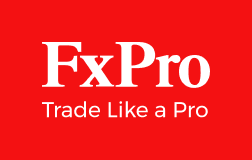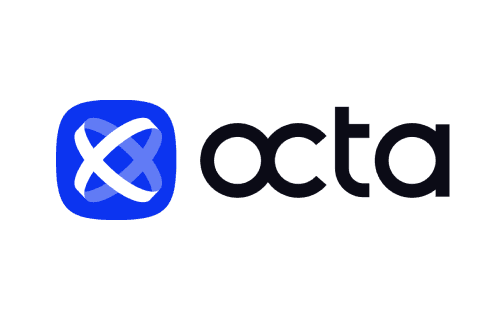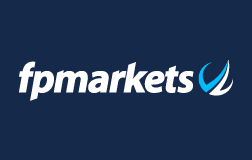Table of Contents
subdirectory_arrow_right Our Top Picks for Best Broker

 Intuitive Interface Across Devices
Intuitive Interface Across Devices
 Access to 3,700+ CFD Markets
Access to 3,700+ CFD Markets
 75+ Technical Analysis Tools
75+ Technical Analysis Tools
 Insightful Educational Resources
Insightful Educational Resources
 Multi-lingual Support
Multi-lingual Support

 4 Account Types
4 Account Types
 2,100+ Tradable Assets
2,100+ Tradable Assets
 Regulated by Reputable Regulatory Authorities
Regulated by Reputable Regulatory Authorities
 Advanced Trading Tools Available
Advanced Trading Tools Available

 Three Account Types
Three Account Types
 $25 Minimum Deposit
$25 Minimum Deposit
 Competitive Spreads
Competitive Spreads

 Three Account Types
Three Account Types
 2250+ Traded Assets
2250+ Traded Assets
 Diverse Range of Trading Instruments
Diverse Range of Trading Instruments

 Three Account Types
Three Account Types
 $0 Minimum Deposit
$0 Minimum Deposit
 1.7+ Million Traded Assets
1.7+ Million Traded Assets

 10,000+ Traded Assets
10,000+ Traded Assets
 Wide Range of Tradable Instruments
Wide Range of Tradable Instruments
 Robust Selection of Trading Platforms
Robust Selection of Trading Platforms






24markets.com is distinguished as the premier online broker due to its exceptional features and benefits. With a user-friendly platform, it caters to both novice and experienced traders, offering a diverse array of assets including stocks, commodities, and cryptocurrencies. Utilizing cutting-edge technology, 24markets.com employs AI algorithms for real-time market analysis and personalized alerts, keeping traders well-informed. Its commitment to education is evident through comprehensive resources such as articles, video tutorials, and webinars.
Regulated and secure, 24markets.com adheres to stringent regulatory standards, safeguarding traders’ funds and personal data. Its innovative tools include the AI-powered SmartFeed, tailoring content to individual trading patterns. Customer-centric support addresses inquiries promptly, enhancing the trading experience. A risk-free demo account is available for practice and strategy refinement. By fostering innovation, prioritizing education, and embracing user accessibility, 24markets.com establishes itself as the preferred choice for both new and seasoned investors. The broker’s holistic approach, combining technological advancement, education, and personalized support, positions it as a leader in the online trading industry.
Read our full review of 24markets.com.Chosen as one of our top picks, Plus500 stands out for its user-friendly platform, competitive offerings, and strong regulatory backing. Its simplicity and accessibility cater to traders of all levels, with the proprietary WebTrader platform offering intuitive functionality. This approach resonates with those prioritizing straightforward execution.
The absence of commission fees and competitive spreads enhance trading affordability, allowing traders to optimize their profits. Plus500’s regulation by esteemed authorities like the Financial Conduct Authority (FCA) boosts credibility and transparency, ensuring a secure trading environment.
Although Plus500 lacks features like MetaTrader 4 and automated trading, its focus on manual control and direct execution is favored by traders seeking uncomplicated approaches. It may not suit advanced traders looking for intricate tools, but it excels for those valuing cost-efficiency and accessibility.
In summary, Plus500’s simplicity, competitive pricing, and robust regulatory framework position it as the preferred choice for traders aiming for a straightforward trading experience. Its commitment to ease of use, reliability, and cost-effectiveness solidifies its standing as a leading online broker.
Read our full review of Plus500.eToro is one of our top picks for the best online broker due to its innovative social trading platform and comprehensive investment options. With the ability to replicate trades of experienced investors, eToro appeals to both beginners and seasoned traders.
The user-friendly interface and diverse asset selection, including stocks and cryptocurrencies, cater to a wide audience. eToro’s all-in-one platform streamlines the investment process by allowing users to explore different avenues within a unified ecosystem.
eToro places a strong emphasis on education and community engagement. Its educational resources and webinars provide valuable insights, while the social trading feature fosters interaction among traders, creating a collaborative atmosphere.
While eToro’s spreads might be slightly higher, the benefits of social trading and a robust educational experience outweigh this aspect. For those prioritizing peer learning, eToro’s social interaction, educational resources, and diverse assets make it an exceptional choice.
Read our full review of eToro.FP Markets stands as one of our top choices among online brokers due to its comprehensive and transparent trading environment. With a commitment to meeting diverse trader needs, the broker offers advanced trading platforms, competitive spreads, and an extensive array of tradable instruments.
The presence of both MetaTrader 4 and MetaTrader 5 platforms equips traders with powerful tools for effective strategy implementation and real-time market analysis. FP Markets’ dedication to providing low spreads enhances its cost-effectiveness, ensuring favorable trading conditions for clients.
A distinctive feature is FP Markets’ direct market access (DMA) model, which fosters transparency by allowing direct trading with liquidity providers. This minimizes potential conflicts of interest and supports a more open trading experience.
The broker’s wide range of tradable assets spans across forex, commodities, indices, cryptocurrencies, and more, enabling traders to diversify their portfolios conveniently.
FP Markets also excels in its educational resources, offering tutorials, market analysis, and more. Coupled with responsive customer support, this enhances the overall trading experience.
In summary, FP Markets’ combination of advanced platforms, competitive pricing, diverse tradable assets, educational resources, and customer support makes it a prominent choice for traders seeking a reliable and transparent trading platform.
Read our full review of FP Markets.XM stands out as our top choice among online brokers due to its comprehensive offerings and client-centric approach. The broker’s commitment to providing a versatile and user-friendly trading experience is a standout factor in our selection.
With a wide range of trading accounts catering to different styles and experience levels, XM ensures traders can find the perfect fit. Its user-friendly trading platforms, including MetaTrader 4 and MetaTrader 5, offer powerful analysis and execution tools suitable for both beginners and experienced traders.
Competitive spreads and transparent fee structures enhance the cost-effectiveness of trading with XM. The broker’s robust regulation and adherence to strict financial standards further demonstrate its commitment to transparency.
XM excels in education, offering a variety of resources such as video tutorials and webinars. This dedication to empowering traders with knowledge highlights its value as a partner in skill development.
The broker’s responsive 24/5 customer support ensures traders can seek assistance when needed. This focus on client satisfaction aligns with our criteria for a top online broker.
In summary, XM’s diverse account options, user-friendly platforms, competitive pricing, educational resources, and dedicated customer support make it the preferred choice for traders seeking a holistic and supportive trading environment.
Read our full review of XM.An online broker is a financial intermediary that facilitates the buying and selling of various financial instruments, such as stocks, bonds, commodities, currencies, and more, through an internet-based platform. Unlike traditional brokerage firms that require in-person or phone-based transactions, online brokers allow individuals to trade and manage their investments conveniently from their computers or mobile devices. These platforms offer a range of tools and resources to assist traders and investors in making informed decisions, executing trades, and monitoring their portfolios. Online brokers have democratized access to financial markets, enabling individuals of all backgrounds to participate in trading and investment activities with greater ease and flexibility.
Online brokers provide a gateway to the stock market, allowing you to engage in buying and selling securities present in your investment portfolio. Upon setting up an account, you gain access to a trading platform equipped with a variety of investment tools. These online brokerage platforms differ, ranging from simple interfaces designed for basic transactions to more complex platforms catering to professional traders.
In terms of securities trading, online brokers transmit your orders to the markets, acting either as custodians themselves or routing orders to trusted custodians. They collaborate with market makers to match buyers and sellers, overseeing settlement processes that involve the exchange of cash for securities.
An online brokerage account is a digital platform that enables individuals to access and manage their investments in financial markets. Through these accounts, investors can buy, sell, and manage various assets, such as stocks, bonds, mutual funds, and exchange-traded funds (ETFs), all from the convenience of their computers or mobile devices.
These accounts are established with online brokerage firms, which act as intermediaries between investors and the financial markets. Opening an online brokerage account typically involves providing personal and financial information, after which investors can deposit funds into their accounts to start trading.
Brokers intermediate transactions between a buyer and a seller. They receive a commission after the deal is executed (though, sometimes, they choose to reduce or even eliminate commission fees for certain trading products).
- Research & Marketing: While the broker is an intermediary by definition, it can do much more than that. A good broker will provide you with research, data, and trading tools that will help you determine which trades to make or avoid. Some brokers assemble their data using multiple sources, while others generate their own research, commentary, and advice. The best brokers are those who source from as many locations as possible yet still have the ability to generate their own research.
- Discount vs. Full-Service: A discount broker charges a reduced commission, usually within the range of $5 to $15 per trade. The broker has a lowered fee structure, and its employees work on salary, not commission. Discount brokers don’t offer personalized advice or account management; they are true, no-frills intermediaries. By contrast, a full-service broker doesn’t just execute trades on traders’ behalf; it also offers market research, retirement planning, and investment advice, all of which are added to its full range of trading products. Investors will willingly pay higher commissions for a full-service broker due to the advantages it brings to the table.
- Technology Suites: Lastly, a broker should provide you with the latest in trading technology. Many brokers have downloadable platforms, in addition to apps and websites. High-tech trading platforms help traders access their information conveniently and execute trades quickly and effortlessly. A broker should make trading far more convenient for you.
When looking for a broker, you want to make sure that you take into account fees and commissions, user experience, customer support, and product variety. Though this list is far from exhaustive, it will put you on the right path to selecting the best broker for you.
- Fees and Commissions: Your earnings will take a cut if the broker you select has high fees or commissions. Check to see if the broker you’re thinking of choosing has commission-free trades. If they do, check that those products line up with the ones you intend to trade. Fees and commissions hit your wallet hard, so you want a broker with as few of those as possible. In our broker reviews, we break down the pricing for trades and services.
- Customer Support: Along the lines of positive user experience is excellent customer support. While customer support might not be at the forefront of everyone’s mind when they are selecting a broker, it is still a must-have. You never know how much you need customer support until something goes wrong. You want responsive, fast customer service that won’t put you on hold for hours and cause you to miss crucial trading time.
- Product Variety: A wide range of products is essential. If you’re a trader who wants a diverse portfolio, you can’t afford to be hemmed in by a short bench of trading products. Check what the broker offers. Also, check to see how long withdrawals and deposits take. You want your trading career to move quickly, not be held up by long wait times.
Research, research, and more research. Choose a broker the way you would a car. Look into the reviews, customer complaints, and the ins and outs of each broker. Weigh the pros and cons. Don’t be afraid to try the brokers’ demos, many of which they offer free of charge, before you commit to a plan.
As aforementioned and further discussed in the individual reviews, brokers are multifaceted. Each broker has its pros and cons. However, there are some things that are non negotiable, such as transparency and regulation.
- Transparency: A broker must be upfront about their fees, commissions, and whatever else they charge. A broker that tries to hide this information is to be avoided at all costs. Reputable brokers won’t try to hide pricing plans from you, nor will they play “gotcha” games with customers.
- Regulation: There are several main regulatory bodies in charge of overseeing brokers, such as FINRA, the SIPC, and the SEC. Brokers should have their regulators listed at the bottom of their home page, and some brokers even go above and beyond and include information about their intra-company ethics policies.
Transparency and regulatory oversight are just two of the many factors to consider when selecting a broker. The overall key to choosing your broker is researching all your options before making a decision.
At Investing.com, our mission is to provide traders with accurate and up-to-date information about brokers. To achieve this, we’ve developed a comprehensive rating system that quantifies each broker’s performance. Our ranking methodology is designed to offer traders valuable insights into broker features, strengths, and potential areas for improvement. We aim to equip traders with the knowledge they need to make informed decisions on their trading journey.
We selected the best brokers through a rigorous evaluation process that considered multiple critical factors. Our approach aims to provide you with a comprehensive understanding of each broker’s strengths, features, and potential areas for improvement. Here’s an overview of how we chose the best brokers:
- In-Depth Analysis: Our team of experienced experts delved into each broker’s offerings to assess their compatibility with the MetaTrader 4 (MT4) platform, as well as other platforms. We evaluated the broker’s platform for user-friendliness, advanced charting tools, ease of use, and compatibility with various devices.
- Trust and Safety: Regulatory compliance was a top priority. We ensured that brokers offering MT4 were licensed and regulated by credible authorities. We evaluated the broker’s measures for fraud prevention and client fund security to ensure a secure trading environment.
- Additional Features: We also ascertained the presence of other supplementary features to support traders, encompassing market variety, account options, fee structures, customer service, trading tools, and more.
Several online brokers are known for offering low fees to their clients. It’s important to note that fee structures can vary based on the type of account, trading instruments, and other factors. However, brokers like FXTM, IC Markets, and FP Markets are often highlighted for their competitive fee structures. These brokers strive to keep trading costs low by offering tight spreads, minimal commission fees, and transparent pricing.
Yes, it’s possible to lose money in a brokerage account. Brokerage accounts are used for trading and investing in various financial instruments, such as stocks, bonds, commodities, and currencies. The value of these assets can fluctuate due to market volatility, economic conditions, geopolitical events, and other factors. As a result, the value of your investments can go down, leading to potential losses.
What Is the Difference Between Trading and Investing?
The difference between trading and investing lies primarily in the approach, goals, and time horizon. In summary, trading involves shorter timeframes, higher risk, and more active decision-making, while investing is focused on the long term, wealth accumulation, and a more passive approach to managing assets. Individuals should choose the approach that aligns with their financial goals, risk tolerance, and time commitment.